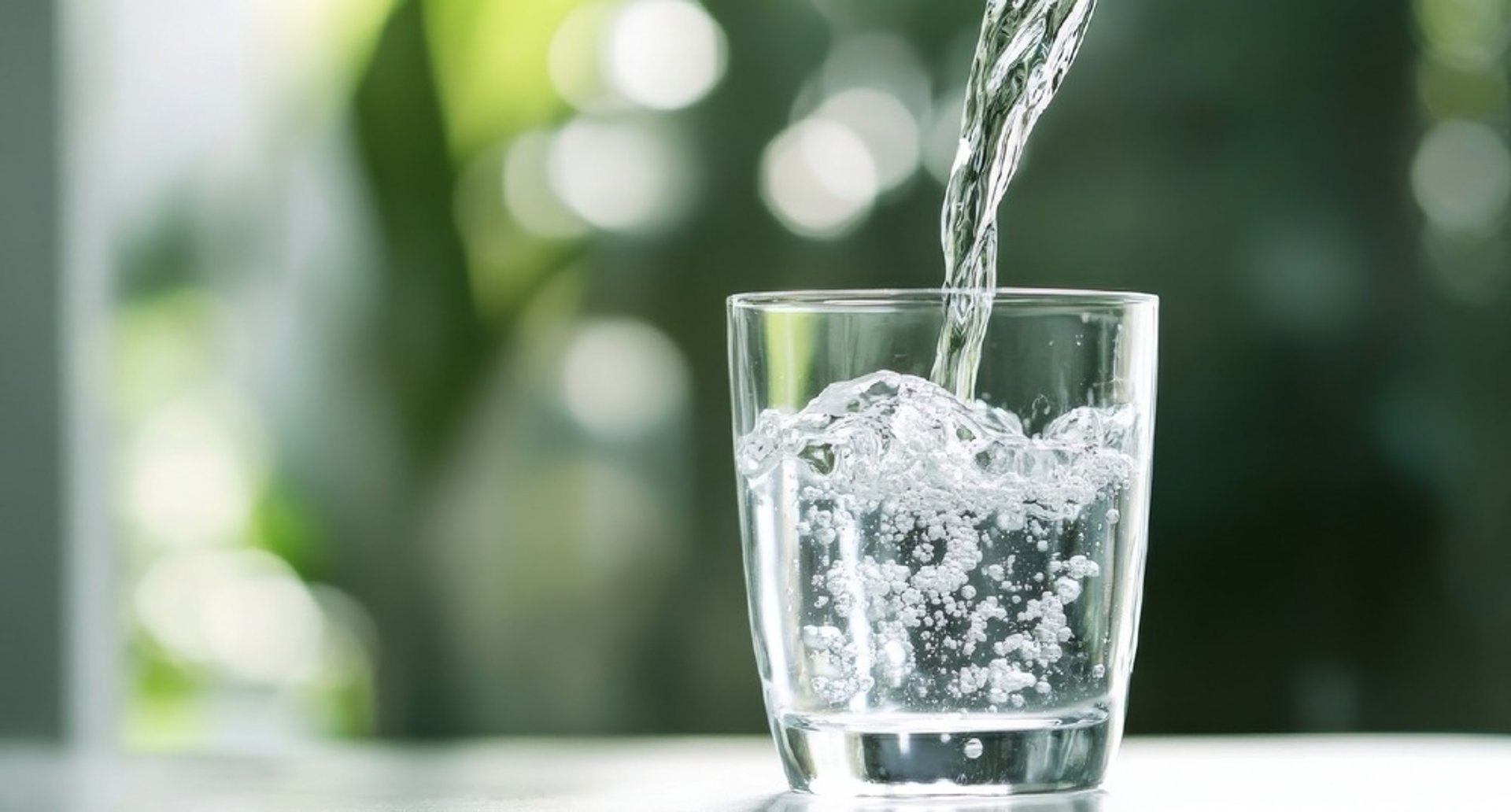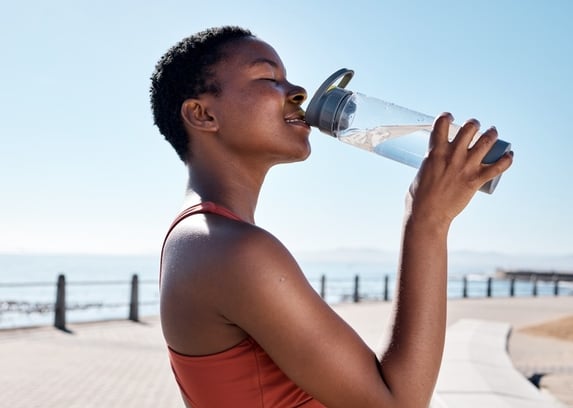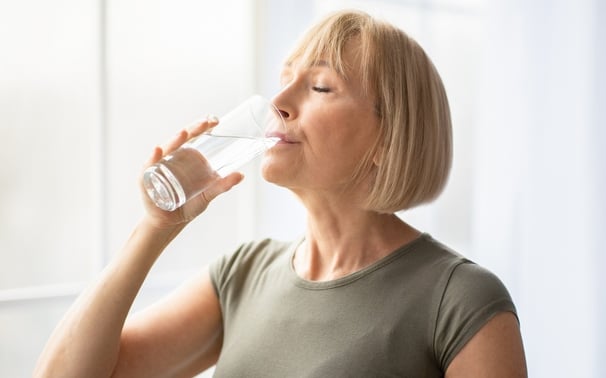
The Science of Water: What’s Best to Drink and Why, Plus the Benefits
The Science of Water: What’s Best to Drink and Why, Plus the Benefits
Water is the foundation of life, making up about 60% of our bodies and driving nearly every essential function. But not all water is the same, and knowing what’s best to drink can enhance your health, improve your skin, and boost your overall well-being. Let’s explore the science behind hydration, the best types of water to drink, and why staying hydrated is so important.
filtered water at home system - Alkaline 6-Stage Reverse Osmosis System – Buy on Amazon
Why Is Water Essential for Health?
Water is your body’s MVP, acting as a delivery system for nutrients, a waste removal tool, and a regulator of temperature. Even slight dehydration can zap your energy, cloud your focus, and impact physical performance.
How Water Supports Your Body:
Hydration for Cells: Keeps cells functioning at their best by balancing electrolytes.
Detox Power: Helps your kidneys flush out toxins.
Joint Cushioning: Lubricates joints and tissues for better movement.
Skin Glow: Keeps your skin supple, hydrated, and less prone to dryness.
Brain Boost: Improves your mood, memory, and mental clarity.
What’s the Best Water to Drink?
While plain water is a hydration hero, different types of water can offer unique benefits. Here’s what to know about your options:
1. Filtered Water
What It Is: Tap water run through a filter to remove impurities like chlorine, lead, and microplastics.
Why It’s Great: Clean and free of harmful substances, yet still contains essential minerals like calcium and magnesium.
Best For: Everyday hydration.
Refrigerator Water Filter – Buy on Amazon
Waterdrop 15UA Under Sink Water Filter System – Buy on Amazon
Water Filter System – Buy on Amazon
2. Mineral Water
What It Is: Naturally sourced water rich in minerals like potassium, calcium, and magnesium.
Why It’s Great: Promotes bone health, supports muscles, and balances electrolytes.
Best For: A nutrient-packed alternative to regular water.
3. Spring Water
What It Is: Bottled water from natural springs, typically clean and mineral-rich.
Why It’s Great: Free of contaminants and packed with natural goodness.
Best For: On-the-go hydration.
4. Electrolyte Water
What It Is: Water enhanced with electrolytes like magnesium, sodium, and potassium.
Why It’s Great: Replenishes lost electrolytes after intense exercise or illness.
Best For: Post-workout recovery or during sickness.
5. Alkaline Water
What It Is: Water with a higher pH, often enriched with minerals like calcium.
Why It’s Great: May help neutralize acid in the body and ease acid reflux symptoms.
Best For: Those with acid reflux or as part of a balanced diet.
Icelandic Glacial Natural Spring Alkaline Water – Buy on Amazon
6. Infused Water
What It Is: Water flavored naturally with fruits, herbs, or vegetables (e.g., lemon, mint, or cucumber).
Why It’s Great: Adds antioxidants and vitamins while making hydration more enjoyable.
Best For: A flavorful twist on plain water.
3. The Benefits of Staying Hydrated
Proper hydration doesn’t just quench your thirst—it supercharges your body. Here’s what staying hydrated can do:
1. Energy Boost
Water maintains blood volume, ensuring oxygen and nutrients are delivered efficiently, keeping fatigue at bay.
2. Sharper Brain Function
Hydration enhances mood, memory, and focus while preventing headaches and irritability.
3. Better Digestion
Water aids in breaking down food, absorbing nutrients, and preventing constipation.
4. Natural Detox
Your kidneys need water to filter out toxins and waste effectively.
5. Glowing Skin
Well-hydrated skin stays plump and youthful, reducing the appearance of dryness and wrinkles.
6. Weight Support
Drinking water before meals can curb appetite and support metabolism, while replacing sugary drinks helps cut empty calories.
7. Muscle and Joint Health
Hydration minimizes joint friction and prevents muscle cramps, especially during physical activity.
4. How Much Water Should You Drink?
The old “8 glasses a day” rule is a good start, but your individual needs depend on factors like your size, activity level, and climate.
General Guidelines:
Average Adult: Women need about 2.7 liters; men need 3.7 liters daily, including water from food.
During Exercise: Add 0.5 to 1 liter per hour of physical activity.
Check Hydration: Pale yellow urine is a good indicator that you’re drinking enough.
5. Tips for Staying Hydrated
Small changes can make a big difference in meeting your hydration goals:
Start the Day with Water: Rehydrate first thing in the morning after a night’s rest.
Set Reminders: Use apps or alarms to stay on track with regular sips.
Add Flavor: Infuse water with fruits or herbs for a refreshing taste.
Carry a Bottle: A reusable bottle makes hydration easy wherever you go.
Eat Hydrating Foods: Snack on water-rich options like watermelon, cucumber, and oranges.
6. Personalized Hydration Choices
Your hydration needs are as unique as you are. Experiment with different types of water to see what feels best for your body. Special conditions or high activity levels might call for a tailored approach—listen to your body and adjust as needed.
Conclusion
Water is more than just a drink—it’s the key to better health, clearer skin, and a sharper mind. Whether you opt for filtered water, mineral-rich options, or infused flavors, the most important thing is to stay consistent. Drink up, stay hydrated, and enjoy the remarkable benefits water brings to your life!
The science of water
Water is the foundation of life, making up about 60% of our bodies and driving nearly every essential function. But not all water is the same, and knowing what’s best to drink can enhance your health, improve your skin, and boost your overall well-being. Let’s explore the science behind hydration, the best types of water to drink, and why staying hydrated is so important.





